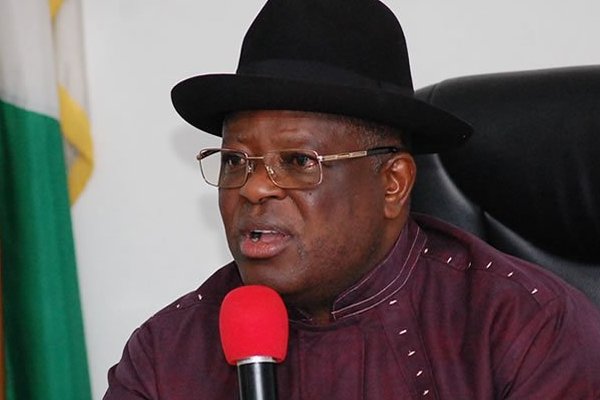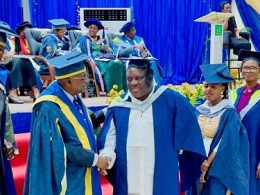An Igbosere High Court in Lagos on Tuesday heard that a Synagogue Church of All Nations (SCOAN) building that collapsed on September 12, 2014 and allegedly killed 116 worshipers was in ‘perfect condition.’
A volunteer in the church’s maintenance department, Dayo Fabiyi, told Justice Justice Lawal-Akapo that the building had no crack or any deflection on its beams before its collapse.
He however noted that he was not part of the team that investigated the beams after the incident.
Fabiyi, an architect, testified as the seventh defence witness in the ongoing trial of four defendants – two engineers and their firms – for the building collapse deaths.
The defendants are: Oladele Ogundeji and Akinbela Fatiregun charged alongside their companies – Hardrock Construction and Engineering Company and Jandy Trust Ltd.
They are facing a 110-count charge of involuntary manslaughter said to contravene Section 222 of the Criminal Law of Lagos State, 2011.
A fifth defendant, the Registered Trustees of SCOAN is facing a count of building without approval.
The Lagos State Government said the Trustees violated Section 75 of the Urban and Regional Planning Law of Lagos State, 2010.
All defendants were arraigned on April 19, 2016.
They pleaded not guilty.
At the resumption of proceedings, Fabiyi testified while been led in evidence by the fourth defendant counsel, Mr Olalekan Ojo (SAN).
He explained that he worked as a volunteer in SCON’s maintenance department from February 2014 till date.
“I go round the facilities to check if there was any sort of cracks or deflections on the beams and I did such routine inspection on the collapsed building last on September 14, 2014.
“There was no sign of deflections or any stress on the collapsed building before it collapsed,” Fabiyi said.
During cross-examination by prosecution counsel, Dr. Jide Martins, the witness stated that he was not involved in the investigation of the beams of the collapsed building.
Nevertheless, he maintained that cracks and defections were “always visible to the eyes.”
Following a question by Martins, the witness agreed that he did not use any mechanical devices to check for deflections during his maintenance works.
During ‘re-examination by Ojo, the witness told the court that it was not only civil engineers that could detect cracks in a building.
He also stated that mechanical devices were only used to investigate deflections after a building had collapsed not before.
“A defective building must have shown signs that the building is under stress, the collapsed building did not show any sign of stress before it collapsed,” Fabiyi said.
Earlier, fifth defense witness, Mr Ebenezer Ologuntoye, an engineer, said apart from foundational failure, other factors could be responsible for a building collapse.
Ologuntoye, who stated this during cross-examination by the prosecutor, explained that from his investigation “the building did not collapse due to foundational failure”.
The witness said: “As a civil engineer, apart from foundational failure, other factors can be responsible for the collapse of a building”.
However, following a question by Dr Martins, Ologuntoye stated that he was never contracted by the church to do any geotechnical work on the building before its collapse.
Following the conclusion of testimonies, Justice Lawal-Akapo adjourned further hearing till June 28.









